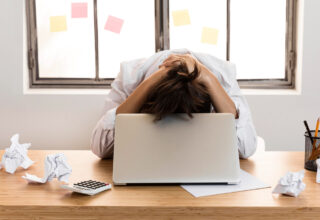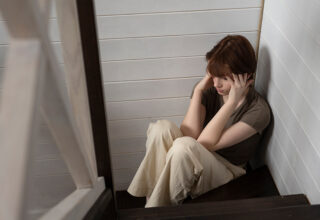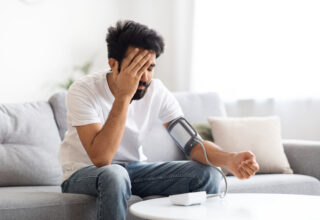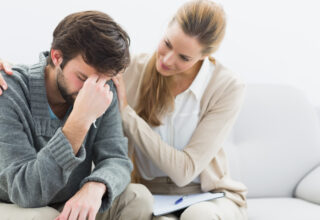Free Anxiety Test:
Check Anonymously if You Really Need Help
Over 500 million people worldwide struggle with anxiety and depression. If you’re feeling overwhelmed, experiencing constant worry, or struggling with daily life — that’s not weakness. It’s a sign you need support, and we’re here to help.
↓
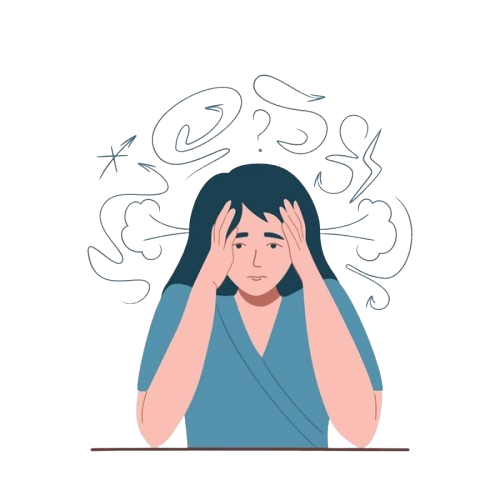
What is Anxiety?
Anxiety is a natural human response to stress or perceived danger. It’s a feeling of worry, nervousness, or fear about what might happen.
Although occasional anxiety is normal, if it becomes constant or excessive or starts interfering with your daily life, it can become a problem.
Anxiety can manifest emotionally, mentally and physically. Its common symptoms include:
Rapid heart beat and breathing
Sweating
Trembling, restlessness, and nervousness
Dizziness
Stomach issues (nausea, diarrhoea or constipation)
Sleep disturbances
Fear that interferes with daily life
Difficulty concentrating
Mental Health Assessment
Answer 15 honest questions about how you've been feeling lately. This confidential assessment uses clinically-validated questions to help identify symptoms of anxiety and depression.
💡 Recommended Next Steps
Get Your Free Anxiety Toolkit
Comprehensive strategies for managing anxiety + daily mood tracker to monitor your progress
🔒 We respect your privacy. Unsubscribe anytime.
Need Time Off for Your Mental Health?
If you're feeling overwhelmed and need rest, we can help. Get a certified sick note from a licensed doctor online in minutes.
Get Your Sick Note →Choose Your Condition
Select the condition that best matches your symptoms for a tailored assessment
Chronic Pain
Back pain, joint pain, headaches, and muscle tension affecting daily activities.
Respiratory & GI
Breathing issues, cough, digestive problems, and stomach-related symptoms.
Stress & Burnout
Work-related stress, overwhelming pressure, and burnout symptoms.
Anxiety & Depression
Mental health challenges, anxiety disorders, and mood-related symptoms.
Understanding Anxiety & Depression
🎯 What You Might Feel
Persistent worry, racing thoughts, difficulty concentrating, fatigue, changes in sleep or appetite, loss of interest in activities, feelings of hopelessness.
💼 Impact on Life
Anxiety and depression can affect your work performance, relationships, physical health, and overall quality of life. Taking time to address these issues is crucial.
💊 Treatment Options
Therapy (like CBT), medication, lifestyle changes, and self-care strategies are all proven effective. Most people see significant improvement with proper treatment.
🌟 When to Seek Help
If symptoms persist for more than two weeks, interfere with daily life, or you have thoughts of self-harm, reach out to a healthcare provider immediately.
Do You Want to Know More?
If you want to learn more about anxiety, here are some related articles you might find helpful
Workplaces today are busier and more demanding than ever. Many of us find ourselves often…
Depression is a common mental health condition which affects millions of people around the world.…
Anxiety is something most of us experience from time to time— a racing heart before…
We all worry. It’s part of being a human. It may be about finances, work,…
We all feel anxious from time to time — before a big test, a job…
Anxiety is something most of us deal with at some point in our lives. It…
Anxiety and high blood pressure are two health conditions that may occur together. But many…
Almost everyone experiences anxiety at some point in their life. It is a normal stress…
Depression is a mental health condition that affects millions of people worldwide.It can affect every…
Anxiety and depression are two most common mental health conditions that affect millions of people…
Do you find yourself confused about how to distinguish between anxiety and stress? You are…
Anxiety is something that most people experience in their life at one point or another.…
Frequently Asked Questions
What is a 3-3-3 rule for anxiety?
The 3-3-3 rule is a grounding technique to manage anxiety. It involves noticing 3 things you can see, 3 things you can hear, and moving or touching 3 things such as your limbs or nearby objects.
It helps bring your focus to the present moment and calm racing thoughts.
What are 5 warning signs of anxiety?
Common warning signs of anxiety include:
- Constant or excessive worrying
- Restlessness or feeling on the edge
- Sleep disturbances
- Trouble concentrating
- Physical symptoms like rapid heartbeat, sweating, dizziness, or muscle tension
How to end anxiety?
There are many ways that can help you manage your anxiety effectively. These include deep breathing, mindfulness, regular exercise, proper sleep, self-care, talking to a therapist, and seeking medical help when needed.
Will I ever feel normal again after anxiety?
Yes, with proper coping strategies, support, and sometimes professional help, most people learn to manage their anxiety and return to a normal life.


